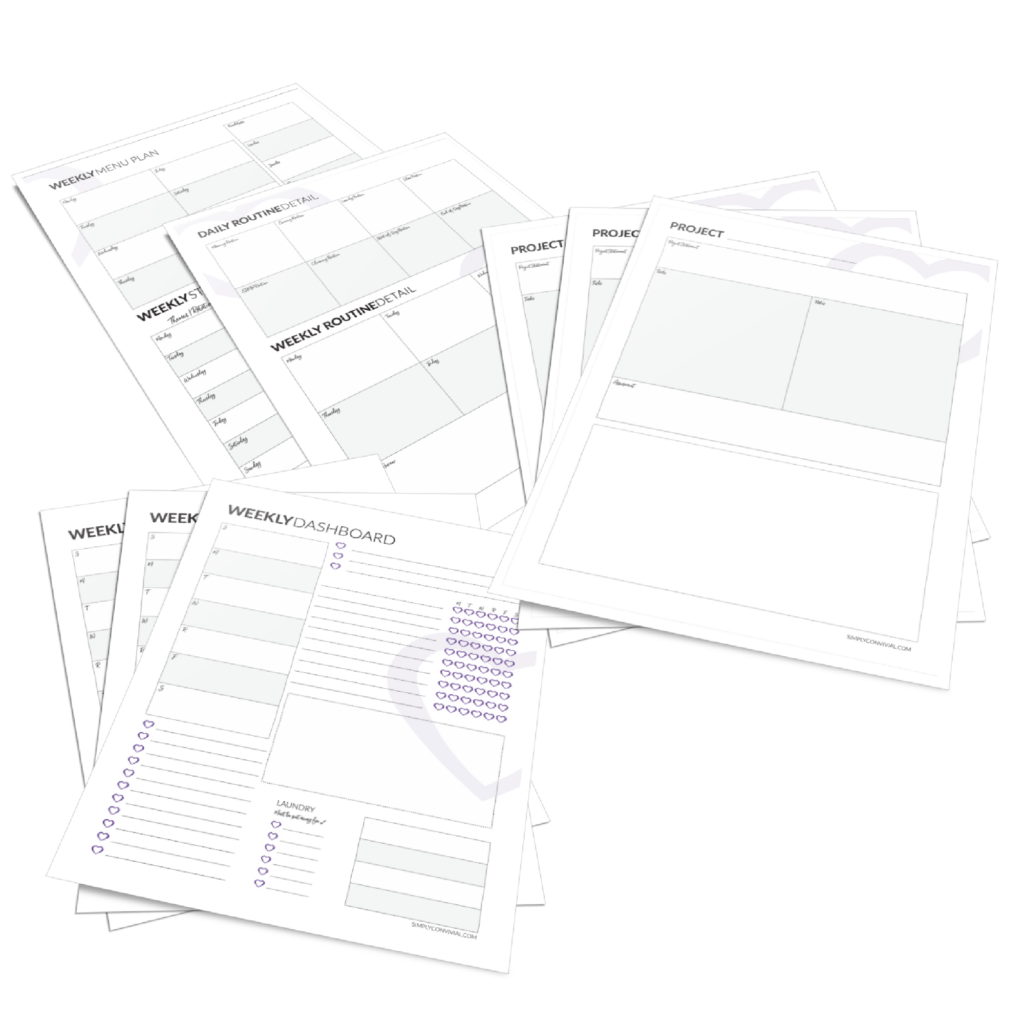The difference between responsive & reactive planning
Responsive planning allows for both intentionality and serving the needs of others, whereas reactive living will drain you dry.

I’ve read so many productivity books over the years that I’ve lost count.
I enjoy those sorts of books, and I’ve tried and scrapped many methods over the years, perfecting my own system more and more and over and over.
The thing is, most productivity advice out there doesn’t translate straight across to our lives as moms, many of us homeschooling, with growing families and community responsibilities. Our lives are not business-centered, but people-centered, and people don’t mesh well with methodically laid-out plans and schemes.
- We can’t close the door and get things done.
- We rarely have uninterrupted time at all.
- We do more repetitive, daily acts than discrete, results-driven jobs.
On top of that, what is most important can shift moment by moment, depending on who is screaming loudest or trailing the most urgent mess.
It’s easy to think we’re being responsive to what’s coming at us when we’re actually being reactive. And the productivity lit out there is certainly right about one thing: living reactively is bad for us, bad for those around us, and will not move us forward.
What’s the difference between reactive and responsive planning?
Being reactive means you have no agenda, no intentions, of your own – what you do is determined by what is happening around you. A reactive mom is one who is not directing and guiding her family and her home, but one who merely follows behind cleaning up messes and fixing problems after the fact.
A reactive mom feels helpless, like throwing up her hands and giving up. She doesn’t think any other state is possible because there are so many messes and problems to deal with that she can’t see how she could have a plan on top of it all.
The opposite of reactive is generally thought of as proactive – setting the tone, preventing problems & messes before they happen, creating an atmosphere with intentionality. This is good and this is true, but it is also true that we have to clean up the inevitable messes.
We can be proactive mothers, but we must also be responsive. People, especially little people, are not like projects that can be put on timelines and worked with deadlines and quarterly goals. It is our calling to look at what’s going on with them right now, in the moment, and determine what they need.
There is a way to do that reactively and a way to do that responsively.
When we let our children dictate what we’re doing, we’re being reactive. However, when we have chosen our path and guide our children from where they are in the moment back to the path, we’re being both responsive – taking into account where they actually are right now – and intentional – choosing the path we know is right.
It takes more time. It takes more attention and energy and awareness.
But it is also more fulfilling, engaging, and life-giving – for us and for our kids.
Choosing responsiveness over reactivity is difficult and requires practice. But practice makes progress and the more we make that choice, the more naturally it will come to us.
